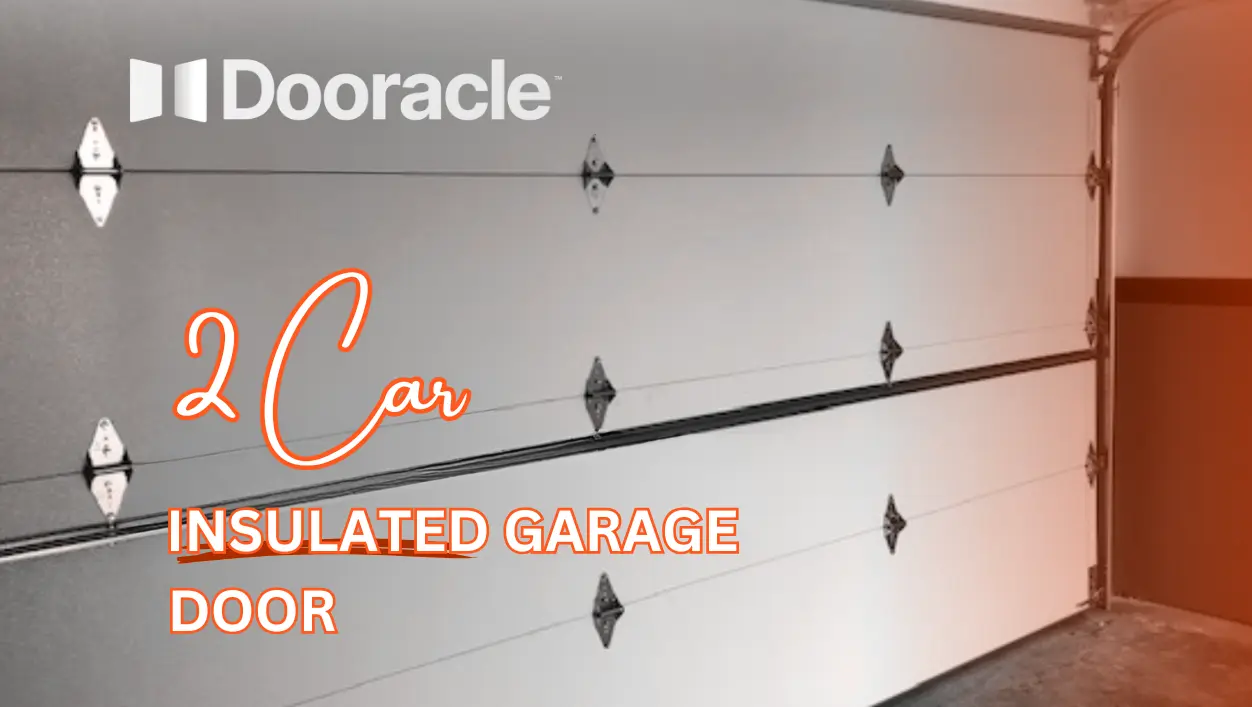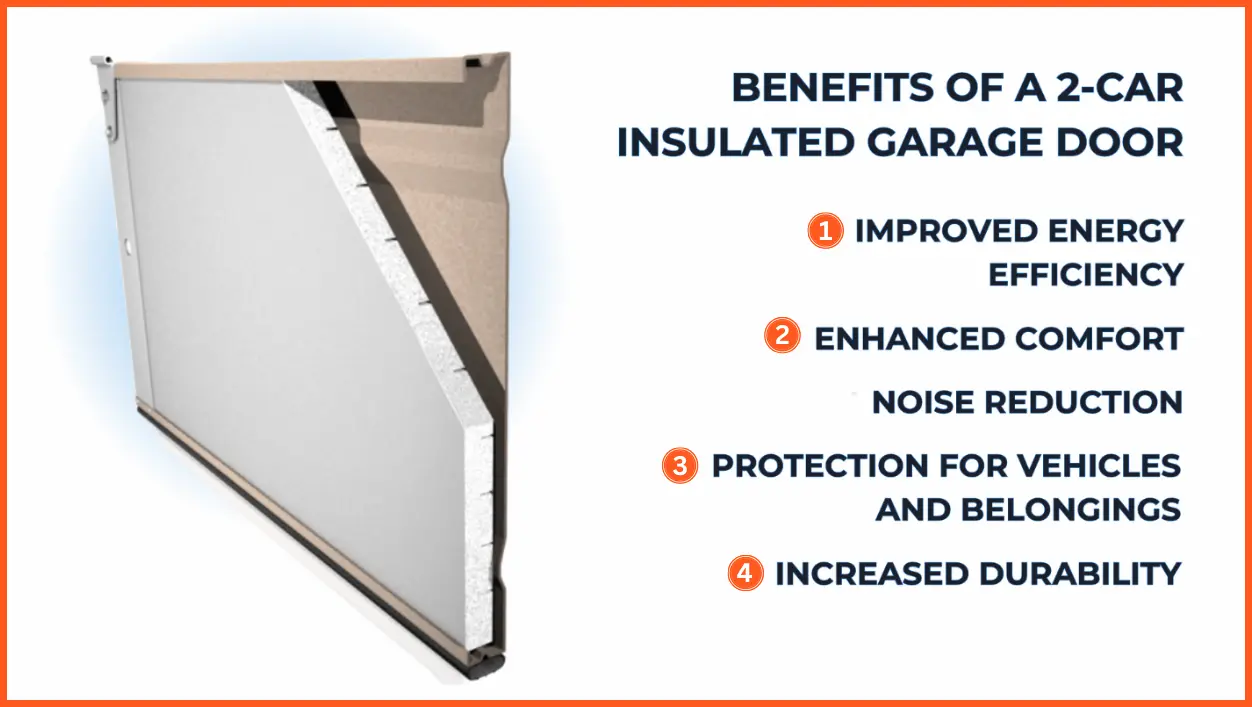
In the realm of home design, every element contributes to the overall comfort and efficiency of a living space. The garage door, often overlooked in discussions of insulation and energy efficiency, plays a significant role in maintaining temperature control and reducing energy costs. In this blog post, we shine a spotlight on the 2-car insulated garage door, exploring its benefits, features, and considerations for homeowners seeking to enhance their home’s thermal performance.

Insulation reduces heat loss in the winter and heat gain in the summer, resulting in lower energy consumption and utility bills.
Maintain a more consistent temperature inside the garage, making it more comfortable for vehicle storage, DIY projects, or recreational activities.
Insulation absorbs sound vibrations, reducing noise from street traffic, lawnmowers, and other outdoor disturbances.
Insulation helps to protect vehicles, tools, and other belongings stored in the garage from extreme temperatures, humidity, and condensation.
Insulated garage doors are often constructed with high-quality materials that offer greater durability and resistance to wear and tear.
Polyurethane or polystyrene foam insulation is injected into the door panels, creating a thermal barrier that minimizes heat transfer.
Insulated garage doors typically feature multiple layers of materials, including steel or aluminum outer panels, insulation, and an interior backing, to enhance thermal efficiency and structural integrity.
Seals around the perimeter of the door and between panels prevent air leakage and infiltration of moisture, dust, and pests.
Optional windows with insulated glass packages allow natural light to enter the garage while minimizing heat loss or gain.
The R-value measures the thermal resistance of the door's insulation. Higher R-values indicate greater insulation effectiveness.
Choose a door material and design that complements your home's architecture and aesthetic preferences.
Ensure the garage door fits the dimensions of your garage opening and accommodates any vehicles or storage needs.
Select a reputable brand with a strong warranty and consider maintenance requirements for long-term performance.

A 2-car insulated garage door offers homeowners a cost-effective solution to improve energy efficiency, enhance comfort, and protect their belongings. By understanding the benefits, features, and considerations of insulated garage doors, homeowners can make informed decisions to maximize the comfort and efficiency of their living spaces.